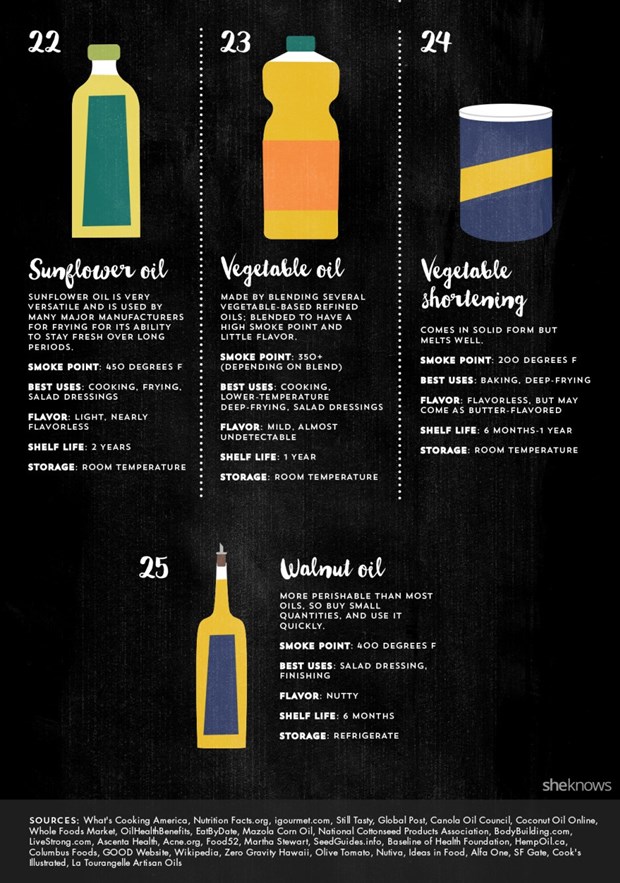While
not technically oils, butter, vegetable shortening and lard are also common
cooking fats, and just like their very close cousins (maybe more like half
siblings), they have their own properties as well.
This
infographic has everything you need to know about cooking with oil (and other
fats) from a culinary standpoint so you're never stuck with a hot mess
(literally) trying to substitute something healthier (or even just trendier)
that won't work for that purpose.

Image: Tiffany Egbert/ SheKnows
General storage tip
The
shelf life may depend on a number of factors, especially for oils stored at
room temperature. If you live in extremely hot or cold climates, that may
affect either the consistency of the stored oil or the actual shelf life. If
your oil ever tastes bitter, it's probably rancid and shouldn't be used, but if
it's just extra thick (or thin), it may be the room temperature, and as long as
it tastes OK, the oil is fine and may even go back to "normal" when
it's back at room temperature.
By Heather
Barnett/ SheKnows